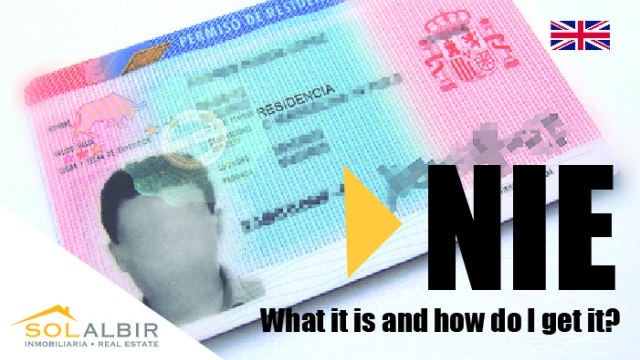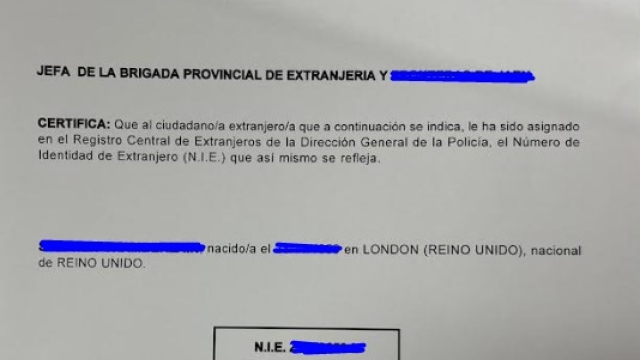Spain is a vibrant country known for its rich history, stunning landscapes, and warm hospitality. Whether you’re planning to study, work, or simply explore this beautiful nation, understanding the bureaucratic requirements is essential. One such requirement is the NIE number, a unique identification number that holds great significance in Spain. In this guide, we will demystify the NIE number, explaining what it is, how to obtain it, and why it is crucial for anyone seeking to navigate the Spanish system. So, let’s dive in and unlock Spain’s secrets as we delve into the world of the NIE number in Spain.
What is an NIE Number?
An NIE Number in Spain, also known as Número de Identificación de Extranjero, is a unique identification number assigned to foreigners in Spain. It serves as a crucial identification document for various legal and administrative procedures. Whether you plan to work, study, buy property, or even open a bank account, having an NIE Number is essential. It is issued by the Spanish authorities, specifically the National Police, and helps to identify and track individuals residing in Spain who are not Spanish citizens.
The NIE Number consists of a letter followed by seven or eight digits, and is unique to each individual. This ensures that every foreigner has a distinct identification number and facilitates their interaction with various government departments and agencies. The NIE Number provides proof of legal residency in Spain and is required for a wide range of activities, from signing employment contracts to registering for health insurance. It is important to note that the NIE Number is not a work permit or a residency card; it simply serves as a unique identifier.
Obtaining an NIE Number is an integral part of the process for anyone planning to stay in Spain for an extended period or engage in any official matters. It is necessary to have this identification number to comply with legal requirements and navigate the various bureaucratic procedures involved in living or doing business in Spain. Understanding the significance and purpose of the NIE Number is fundamental for anyone seeking to demystify the process and ensure a smooth experience in Spain.
Why Do You Need an NIE Number?
If you plan to live, work, or study in Spain, obtaining an NIE (Número de Identificación de Extranjero) number is essential. This unique identification number serves as proof of your legal presence in the country. Whether you are starting a new job, opening a bank account, or purchasing a property, the NIE number is required for a variety of important transactions and legal proceedings.
Without an NIE number, many basic activities can become challenging and complicated. It is impossible to sign official documents, such as rental agreements or employment contracts, without this vital identification number. Additionally, opening a bank account or applying for a loan often necessitates presenting an NIE. Furthermore, non-residents wishing to purchase real estate in Spain must obtain this identification number before they can proceed with their property transaction.
Moreover, the NIE number is essential for tax purposes. If you earn an income in Spain, whether through employment or self-employment, you are required to declare your earnings to the tax authorities. The NIE number is used to link your tax obligations to your personal identity, ensuring that you remain compliant with Spanish tax laws.
In summary, the NIE number is a crucial component of establishing your legal presence in Spain. It is necessary for various legal, financial, and administrative processes, such as signing contracts, opening bank accounts, and fulfilling tax obligations. Obtaining an NIE number should be one of your top priorities when planning to live or engage in any significant activities in Spain.
How to Get an NIE Number in Spain
To obtain an NIE Number in Spain, you will need to follow a few steps. Here’s a simple guide on how to go about it:
Fill out the application form: The first step is to complete the NIE Number application form. You can collect this form from your nearest National Police station or download it online. Make sure to provide all the required information accurately.
Prepare the necessary documents: Along with the application form, you will need to submit certain documents. These usually include a valid passport (original and photocopy), a recent passport-sized photograph, proof of reason for obtaining the NIE Number (such as a job offer letter or a letter from a Spanish educational institution), and proof of address in Spain (such as a rental agreement or utility bill).
Schedule an appointment: Once you have the completed application form and all the required documents, you will need to schedule an appointment at the nearest National Police station. It is advisable to do this well in advance, as appointment availability can vary.
ExtranjeríaAttend the appointment: On the scheduled date and time, make sure to arrive at the National Police station with all the required documents. An officer will review your application and may ask for any additional documents if needed. If everything is in order, you will be asked to pay the applicable fee.
Collect your NIE Number: After completing the necessary steps and paying the fee, you will be issued an NIE Number. It is important to keep this number safe, as it will act as your identification in various official matters while in Spain.

By following these steps, you can successfully obtain an NIE Number in Spain, which will enable you to carry out various legal and administrative activities during your stay in the country.



